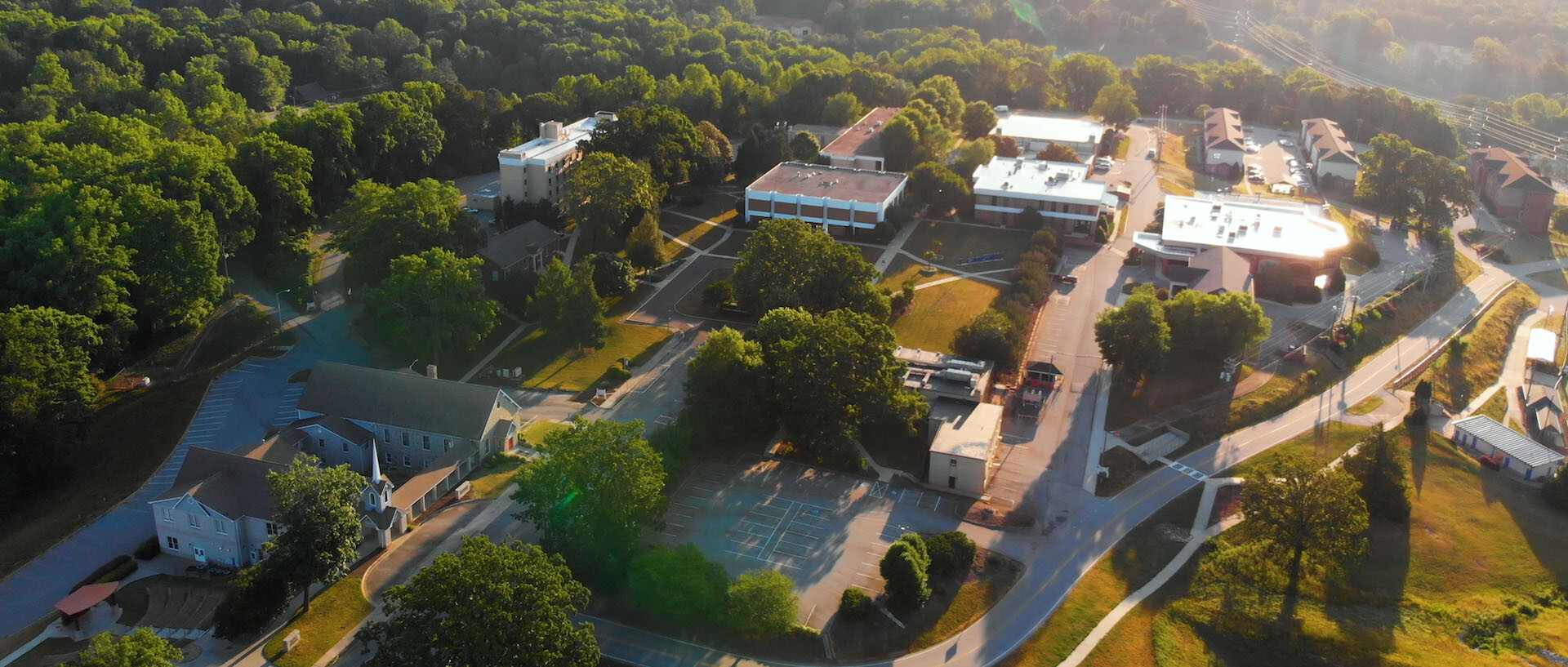
Quality Enhancement Plan
“Transference of Writing”: An Overview (2020-present)
In 2020, Southern Wesleyan University launched its Quality Enhancement Plan "Transference of Writing: Transferring Writing Across the Curriculum." This project aimed to improve student writing by combining intentional writing instruction with multiple opportunities for undergraduate students to practice writing across the curriculum. The university is scheduled to deliver its QEP Impact Report to SACSCOC in Spring 2025, and within the next few years, SWU will begin the process of developing a new QEP, the launch of which will coincide with the university's next accreditation review. A description of SWU's "Transference of Writing" initiative is below.
English 1003 served as a foundational course to introduce concepts and skills connected to academic writing. SWU's faculty subsequently taught and incorporated writing into designated courses in both the core and major curricula.
These courses were arranged in two tiers: Tier One courses were housed in our core curriculum and Tier Two courses were housed in each major. Students were required to successfully complete two courses in Tier One and two in Tier Two to graduate.
To measure student improvement, each writing intensive course included both writing instruction and assessment using a common rubric.
QEP Frequently Asked Questions
The Quality Enhancement Plan (QEP) is an integral component of the reaffirmation of the accreditation process and is derived from an institution’s ongoing comprehensive planning and evaluation processes. It reflects and affirms a commitment to enhance overall institutional quality and effectiveness by focusing on an issue the institution considers important to improving student learning outcomes and/or student success. In essence, the QEP is a long-term plan aimed at enhancing student learning. For more information about what a QEP is or further details about the Southern Association of Colleges and Schools Commission on Colleges (SACSCOC), visit the SACSCOC website.
The faculty, staff, and students of Southern Wesleyan University selected the improvement of student writing as the institution's QEP project. By focusing on writing, the QEP sought to equip students with the communication skills required to succeed in various vocational contexts while improving the overall quality of their academic experience.
The QEP aimed to help students achieve the following outcomes upon completion of the required number of writing intensive courses:
- To produce writing that reflected an awareness of context, purpose, and audience with an emphasis on discipline-specific writing. (Purpose and Audience, Higher Level)
- To use writing to investigate complex, relevant topics and effectively support a message and/or argument. (Exploration and Argumentation, Mid-Level)
- To generate writing free of serious grammatical and mechanical errors. (Mechanics, Lower Level)
These learning outcomes were the result of conversations among faculty that focused on three key questions:
- What specific writing skills need improvement?
- How does a student build upon what he or she learns in first-year writing?
- How does the institution create a coherent curriculum to foster writing improvement?
To integrate writing into the curriculum, SWU created writing intensive (WI) courses both within the core curriculum and within majors. In addition to the instruction provided in their foundational English courses, undergraduates were taught skills related to the student learning outcomes in at least four other courses during their time at SWU.
Tier I (Core Curriculum)
1A: First Core Course
1B: Second Core Course
Tier II (Major)
2A: Lower/Middle-Level Class in Major
2B: Upper-Level Class in Major (e.g., Capstone)
These tiers allowed for the transference of skills as students moved through the educational process. Rather than simply being taught a subject once, students were asked to perform specific writing skills throughout their academic careers.
In writing intensive courses, writing plays a key role in how students learn and interact with course content and demonstrate understanding of the material. In contrast, non-WI courses may rely more heavily upon other modes of learning (e.g., recitation or hands-on experimentation) or methods of assessment (e.g., multiple-choice exams).
Beginning with the 2020-2021 academic year, all new and re-admitted Baccalaureate-seeking students were required to participate in QEP assessments to graduate. Exemption from the Tier One requirement was permitted through the transfer of equivalent courses; earned test credit through Advanced Placement (AP), the DSST (DANTES Subject Standardized Tests), the College-Level Examination Program (CLEP), or the International Baccalaureate Programme (IB); earned equivalent military credit; or through a combination of these methods of transfer of credit for a minimum of 30 transfer credit hours of general education courses. Students were not allowed to use transfer credit for exemption from the Tier Two requirements.